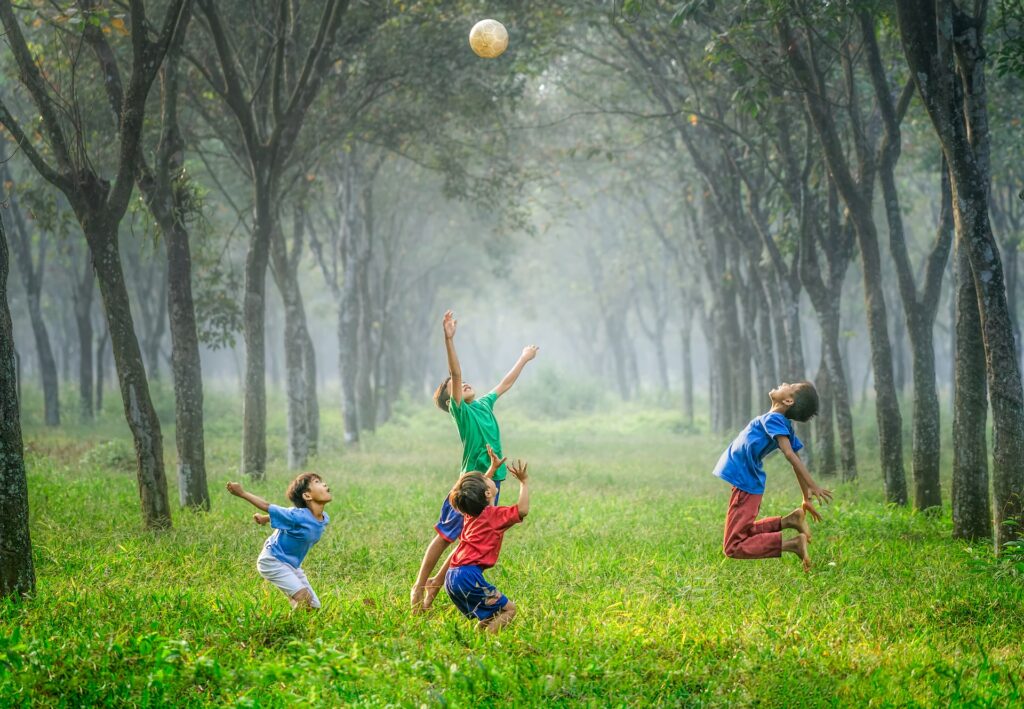
“Trauma is personal. It does not disappear if it is not validated.” ― Danielle Bernock
At some point in their lives, an estimated 46 percent of children have experienced some form of trauma. Parents often say things like, “they were so young when that happened, they won’t even remember it as an adult,” but childhood trauma can have a long-term impact. It can be difficult to understand why you have chronic anxiety; the key may be to investigate your early life experiences. By studying your past, it’s possible to connect those early experiences to why you struggle with anxiety today as an adult. Although this may be difficult, it has the potential to help you overcome your anxiety.
Think back to when you were a child, did you ever worry that your actions would irritate your parents? Research has found that children who were exposed to conflict and adversity as children were more likely to develop mood and anxiety disorders as adults. Our early life experiences are intended to teach us how to interpret and interact with the world. If you grew up with trusting, caring, and supportive parents, you may be inclined to believe that people are genuinely good. Yet, if your experiences were the exact opposite, you may believe that the world and its people are not safe.
Here are some examples of common events that can lead to childhood trauma:
• Drug or alcohol abuse
• Perfectionism
• Unpredictability and fear
• Conditional love
• Lack of boundaries
• Lack of intimacy
• Lack of empathy
• Poor communication
• Emotional or physical abuse
• Untrustworthiness
• Disrespect of boundaries
• Control
• Guilt-tripping
• Excessive criticism
• Triangulation
A child’s relationship with a parent is one of the most instinctively protective, loving, and nurturing experiences a human can have. Children learn to trust others, regulate their emotions, and interact with the world through their relationships with important attachment figures. They also learn to perceive the world as safe or unsafe and develop an understanding of their own worth as individuals. In unstable or unpredictable relationships, children learn that they cannot rely on others for support. When a child’s primary caregivers neglect or abuse them, the child learns that they are bad, and that the world is a dangerous place.
Children whose families did not consistently provide consistent safety, comfort, and protection may develop coping mechanisms that allow them to survive and function on a daily basis. For example, they may be overly sensitive to other people’s moods, constantly watching to see how the people around them are feeling and reacting. When one’s childhood is filled with constant physical and emotional danger, such learned behaviours make sense.
People who have experienced childhood trauma have been shown to have long-lasting changes in their brain and nervous system. One of these changes is a larger or overactive amygdala. The amygdala, located deep within the brain’s centre, is responsible for a variety of functions, including the detection and response to threats. An enlarged or overactive amygdala is associated with an increase in reaction to danger. People who have this symptom may detect danger or threats where none exist, causing them to become fearful or concerned about even minor occurrences. The worry and anxiety these people experience can feel very real and distressing, even when there is nothing to worry about.
Finally, although not all people who live with anxiety experienced childhood trauma, many do discover both large and small traumas in their histories when they examine their childhoods more closely. A person’s early life experiences can have a direct impact on their current level of anxiety. Even if you experienced childhood trauma, it does not mean that all hope is lost. By educating yourself, you can begin to take steps to manage your anxiety in ways that encourage your personal growth and development.
My Practice provides affordable counselling and all profits are reinvested into the organisation to continue providing low-cost counselling and mental health services to our community. If you’re interested in scheduling a free 15-minute consultation with us, book online today.
Sources
Quirke, Licensed Marriage and Family Therapist, M. G. (2019, April 8). Anxiety and Childhood Trauma: Chronic Anxiety’s Early Life Roots. Michael G. Quirke, MFT; michaelgquirke.com. https://michaelgquirke.com/anxiety-and-childhood-trauma-roots-of-chronic-anxiety/
The National Child Traumatic Stress Network. (2018, January 30). Effects | The National Child Traumatic Stress Network. The National Child Traumatic Stress Network; www.nctsn.org. https://www.nctsn.org/what-is-child-trauma/trauma-types/complex-trauma/effects#:~:text=Children%20who%20have%20experienced%20complex,depressi
Binensztok, V. (2020, July 15). How Childhood Trauma Relates to Present-Day Anxiety and Panic – JUNO COUNSELING AND WELLNESS. JUNO COUNSELING AND WELLNESS; junocounseling.com. https://junocounseling.com/how-childhood-trauma-relates-to-present-day-anxiety-and-panic/